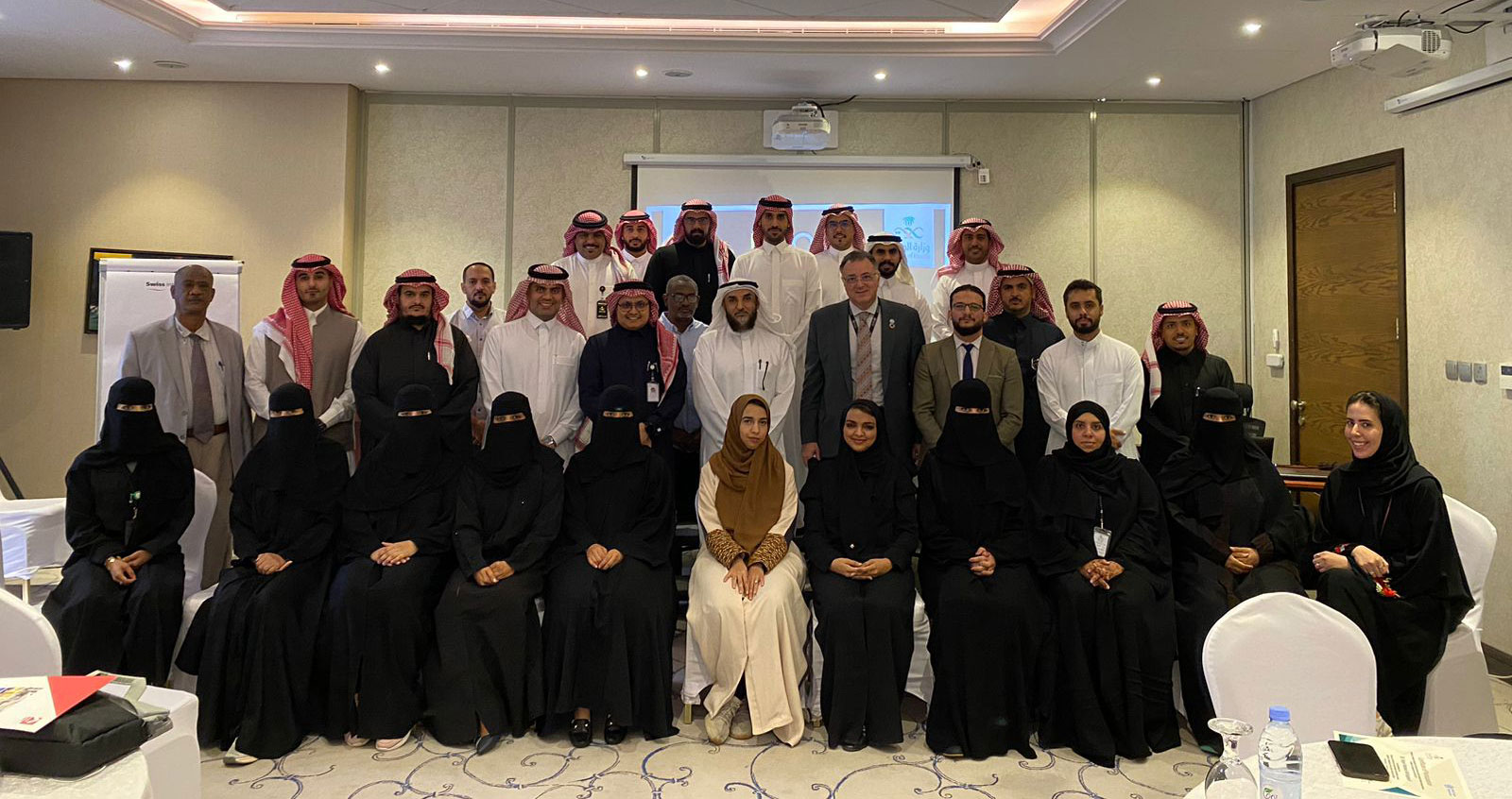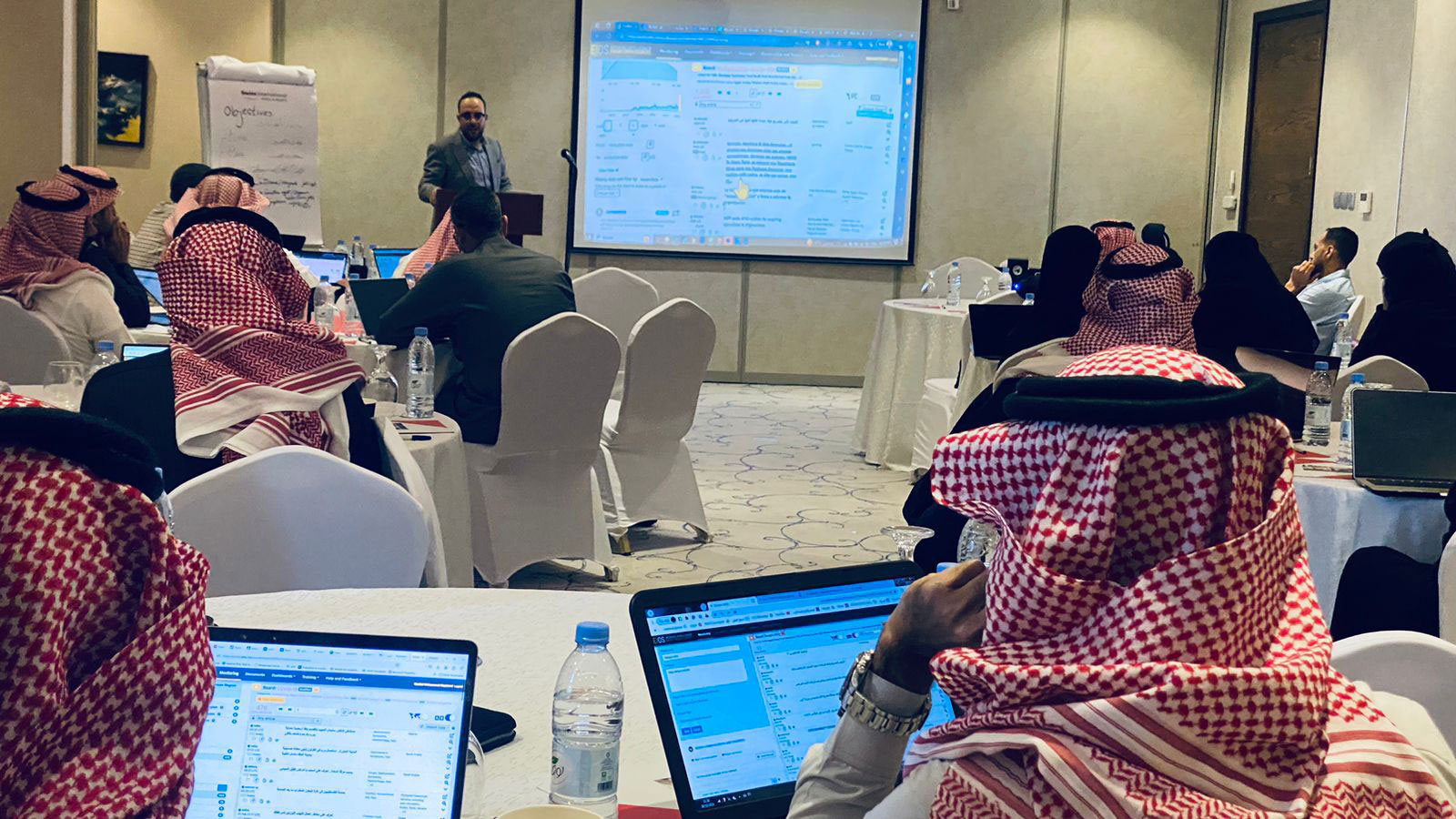 A group photo of the training participants. Photo credit: A. Zuhair
A group photo of the training participants. Photo credit: A. Zuhair
18 April 2024, Cairo, Egypt – Refresher training on the Epidemic Intelligence from Open Sources (EIOS) system has been run by WHO in Riyadh, Saudi Arabia. The training aims to strengthen the existing event-based surveillance (EBS) system within the national surveillance framework by implementing this innovative detection tool.
The 3-day training was attended by EBS staff from various regions of Saudi Arabia, public health emergency operations centre personnel, and other stakeholders involved in EBS within the Ministry of Health of Saudi Arabia. The WHO Regional Office for the Eastern Mediterranean ran the training, which improved participants’ proficiency with the EIOS system.
EIOS allows for the early detection of potential disease outbreaks by providing real-time data and information gleaned by monitoring various open sources of information. These include social media channels, news reports and online health forums. By enabling early detection of potential public health threats, this tool ensures better preparedness and response to health risks and emergencies – not least by keeping decision-makers well-informed.
 Participants listen to a WHO expert during one of the training sessions. Photo credit: WHO/M. FawzyThe EIOS system and this training sit under the WHO EIOS initiative, which aims to enhance capacities for the rapid detection, assessment and follow-up of all public health risks.
Participants listen to a WHO expert during one of the training sessions. Photo credit: WHO/M. FawzyThe EIOS system and this training sit under the WHO EIOS initiative, which aims to enhance capacities for the rapid detection, assessment and follow-up of all public health risks.
The initiative, a unique partnership between bodies involved in epidemic intelligence, seeks to strengthen public health intelligence and build a network to minimize the impacts of emerging risks to human health. The EIOS system supports this network, by allowing its members to collect and filter open-source information to facilitate the timely detection, assessment, and rapid reporting of such risks.
The WHO Regional Office team had previously run an in-depth EIOS training in Saudi Arabia in 2023, since the country leverages the power of EIOS during the annual Hajj pilgrimage. It is estimated that more than 3 million people take part each year in the Hajj season – a mass gathering that poses unique public health challenges.
This earlier training effectively addressed the country’s specific needs, requests and questions about EIOS. Among other things, and working closely with Saudi Arabia’s Ministry of Health, a dedicated Hajj category was added within the EIOS system. This context-specific adaptation allows the tool to be used for focused monitoring and early detection of potential health risks associated with the pilgrimage.
WHO will continue to support Saudi Arabia to ensure the EIOS system’s effective implementation and integration for the benefit of the country and its people.
Related links
Epidemic Intelligence from Open Sources (EIOS): zero impact from health threats


